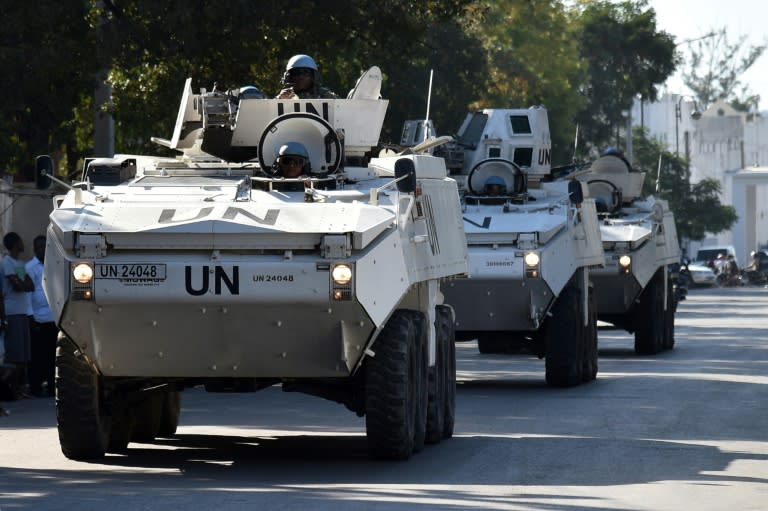UN keeping eye on Haiti, envoy says

Sandra Honore -- a diplomat from Trinidad who has headed the United Nations peacekeeping mission in Haiti, MINUSTAH since July 2013 -- says the UN will keep tabs on progress in the country even after the mission shuts down. Following the UN Security Council's decision on Thursday to end the mission by the end of October, she also spoke to AFP about allegations of sexual abuse committed by UN peacekeepers in the poor Caribbean country. Q: MINUSTAH has inflicted significant harm, in terms of the sexual abuse committed by UN peacekeepers. Doesn't that constitute an enormous failure for the mission that arrived in 2004 to aid the country? A: "It goes without saying that every case is regrettable. We are doing everything to conduct a rigorous investigation, to report to our headquarters and communicate with those countries where the responsible peacekeepers are from in order to carry out legal procedures when necessary. In cases where babies have been born, we are working with those countries to determine paternity through DNA tests if needed. We are also providing counseling for victims." Q: The effort to combat the cholera epidemic caused by Nepalese UN peacekeepers is still largely underfunded (with barely $2 million raised of the $400 million needed). Do you understand the anger of victims who see MINUSTAH's departure as a sign that those responsible will not be punished? A: "Very soon after he took office, UN Secretary General (Antonio) Guterres appealed to member states in an effort to relaunch the call for contributions to the new drive. (...) The United Nations has been working with the government on this since 2010. Between October 2010 and the end of 2016, the United Nations has backed the government by mobilizing more than $330 million in support of the national plan to eliminate cholera. UN agencies have been working on this constantly since the epidemic began." Q: With the departure of the peacekeepers, Haitian civil society is worried about the politicization of the police. The changes within the national police this week (a personnel reshuffle following a rock-throwing incident against the motorcade of President Jovenel Moise) were a bad sign. Do you share that fear? A: "I have received a commitment from the government that national policy can develop and remain apolitical in order to protect and serve all Haitian people. I hope the government's commitment will be strengthened and that we will see its effects. Yes, there have been changes in the police this week. These changes have been explained as stemming from the desire to strengthen certain aspects of the national police's work. I believe the government understands the comments from Haitian civil society and certain international partners about the pressing need for the police to remain apolitical in the service of the entire population."

